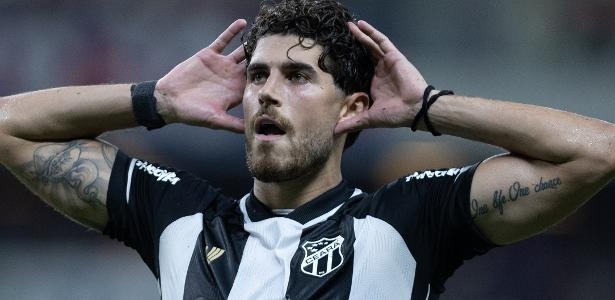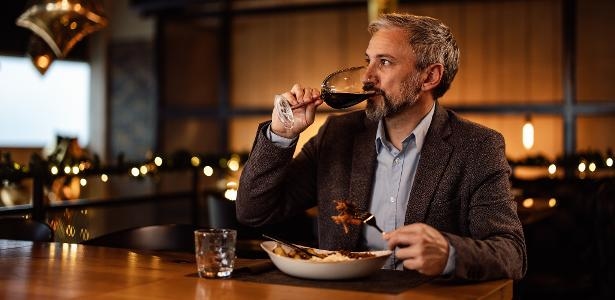Testimony from the father of a 14-year-old boy killed in an operation against Comando Vermelho: 'He was deluded'

When Samuel Peçanha saw, on social media, the photo of a young man's lifeless body in the Mata da Misericórdia forest, in the northern part of Rio de Janeiro , he said he felt it immediately: it was his son.
"At that moment, I felt a burning sensation, a tightness... I said: I lost my son. When I saw the photo—that photo taken up in the mountains—and recognized my boy on the ground, I said: it's him. It's my boy."
"He looked like he was sleeping. The way he was lying in the woods, it was like he slept at home: his two little hands behind his head, peaceful. Seeing that... it hurt me."
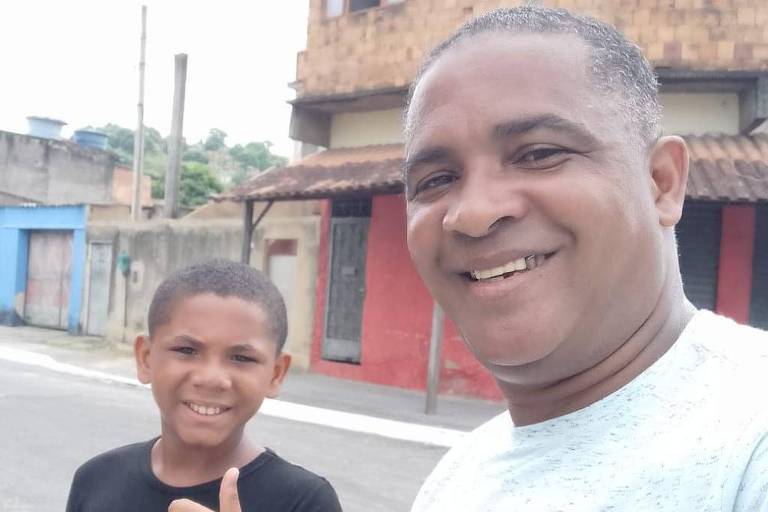
Michel was 14 years old and the youngest of Samuel's five children.
"He was a quiet boy. Inside the house, he just wanted to dance and play. A normal child who loved yogurt and Piraquê biscuits."
"I'm 56 years old – he was the 'son of my old age,' the one you become attached to, the one you work for day and night."
On October 28, Michel was one of the 121 people killed in the deadliest operation in Brazilian history , in the Penha Complex area of Rio de Janeiro – about 40 kilometers from his parents' homes.
Samuel, a general services worker, spoke to BBC News Brazil a week after the operation. He says he has never lived in or even been to the Penha Complex, and that he only recently learned about Michel's involvement in the activities of the Comando Vermelho criminal faction.
"He lived with his mother in the same town as me, and he came to my house three months ago."
The father describes paying child support and fulfilling his obligations, spending time with Michel constantly, but without closely monitoring his routine.
Living under the same roof, she began to observe the boy more closely and discovered that he had stopped going to school. She also found his social media accounts, where she saw photos of Michel holding guns and riding a motorcycle.
"I was completely terrified, and that's when I realized he was deluding himself. I said, 'Son, why are you taking pictures with a gun? Why are you taking pictures in certain places?' He said, 'No, Dad, it's just because I go to the dance with the guys, I know a lot of people...'"
"In the first month he lived with me, he left for two weeks and was gone for four days at a time. He didn't come home with money, or anything. Everything he had here was bought with my money. He didn't use drugs, he didn't bring friends, he was a well-behaved boy. Everyone knew him that way."
Samuel continued discussing the matter with his son, who eventually admitted to being involved with the criminal group.
"I asked: 'Did someone call you or was it of your own free will?'"
According to his father, Michel listened in silence, responded little, but maintained that it was his wish to be there.
He would say, "Dad, don't worry, Dad. I'm still going to make you proud."
"And I would say, 'But that's not the kind of pride I want, you understand? The path you're on, you're not going to bring pride.' He didn't have a problem with crime, robbery, nothing like that. But he was there, doing that job to achieve bigger things. The friends who talked to him said he was 'really crazy.' He didn't need to be called – he would introduce himself."
Samuel says he doesn't know what role his son played within the criminal group.
"I saw on the internet that the job of the young boys is to carry lunch boxes, make deliveries at pick-up points... I believe my son couldn't hold or use a rifle. They only took pictures – someone would put it in his hand, but he didn't have that skill, you understand? But I don't know, right? Today it's difficult to say for sure. But he had several photos, many. And that scared me."
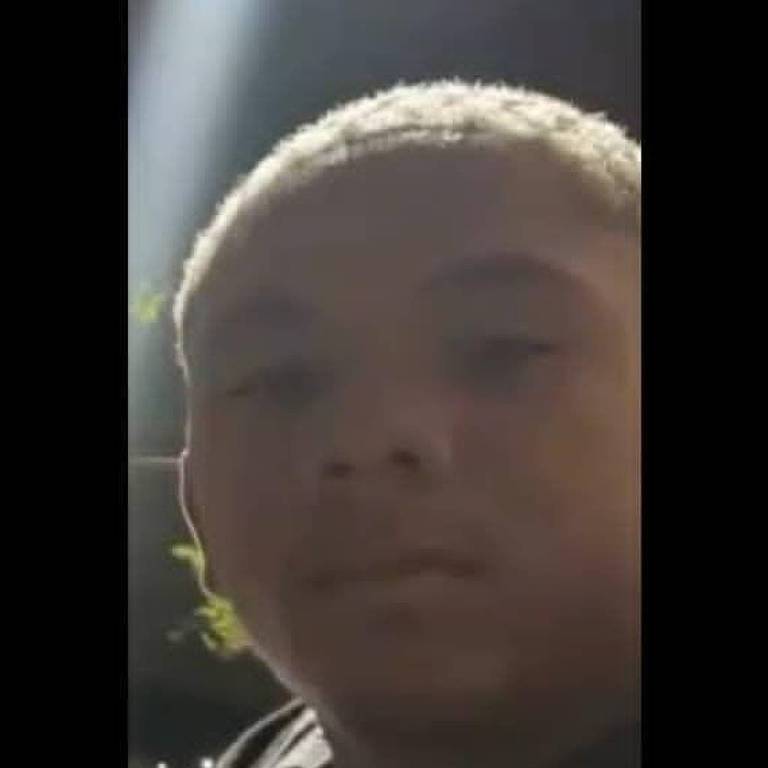
Samuel says that since discovering his son was part of Comando Vermelho, he hasn't been able to sleep or work at the same pace as before, and that he's been trying to bring in experienced people to talk to and try to convince his son to stay away from crime.
"I was still filtering, planning, figuring out how I was going to hold him back, how I was going to convince him... I was working on his mind, bringing him closer to me, doing my best, like a father who loves his son, to get him out of this situation."
"But when I thought he was home, he was out on the street. When I thought I had convinced him, with everything I offered—my best... I worked only for him. I did everything he needed, everything he asked for, I was there ready to serve. But his mind was already... It's very difficult. It's over."
Samuel's routine as a general services assistant also made constant supervision impossible. "At school, he would go in, take a picture, and leave. He always did that. When his mother went one way, his girlfriend another, he took advantage. There was no way I could watch him 24 hours a day because I work outside the home, Monday to Friday. I was at work, trying to do things for him..."
"At that moment, I couldn't, as people wanted and imagined, portray my son as a victim—even though he was only fourteen years old. Because life is made of choices. It's difficult."
He says he tried to understand what led Michel to distance himself from his family and school. "The way he chose, abandoning his studies, was shocking to me. I can even show you the medical certificates... I started missing work, getting sick, trying to understand. I swear I sought help, but I couldn't comprehend the magnitude of what was happening to him."
Samuel believes his son gradually lost his fear of the violence surrounding him. "A fourteen-year-old boy, seeing his classmates die... He would comment: 'So-and-so died,' but without feeling it. They become cold. He no longer had the feelings that we have. He saw so much death that it became routine."
"I'm on medication. In the same place, in the same house. His bed is there, his clothes are neatly folded. And I see him asking me for things... Just yesterday I made two glasses of juice. I went there and bought him some cookies. And then it hit me: 'My God, he's not here.'"
He fondly remembers his son's routine. "Michel would get up in the morning at home, wash the dishes, clean the bathroom... And he'd say, 'Dad, let me make the rice so I don't bother my aunt.' That was the kind of child I had, loving. But he was deluded into thinking he was sitting on a motorcycle. He didn't see the danger."
The father believes that social media, functioning as a showcase of a luxurious—and above all, easy—life, is what attracted Michel and continues to seduce other boys like him.
"That's what attracts these young people. Social media shows you many kids who sometimes even go to jail and still maintain their fame. It greatly influences their minds, because from their perspective... what happens in these people's lives seems to happen overnight."
"This ostentatious display that exists in the communities—what is shown on television and social media—makes them think that everything comes easily. They think they'll get there and have that power. My son wanted to 'rise in the social scene,' you know? He had that mentality. He only talked about people in power."
Samuel says he was trying to explain that things are achieved through stages, study, and work.
"I can't understand his thinking, a 14-year-old boy, what led him to be in this moment of war. I said: 'The problem, son, is a motorcycle? I'll give you a motorcycle. When you get older, we'll conquer everything.'"
"I was preparing a room just for him—a wooden wardrobe, a bed, everything ready. I was going to finish it this November, with his thirteenth salary. I kept saying, 'What do you get out of this if you don't need it? It's all here.'"
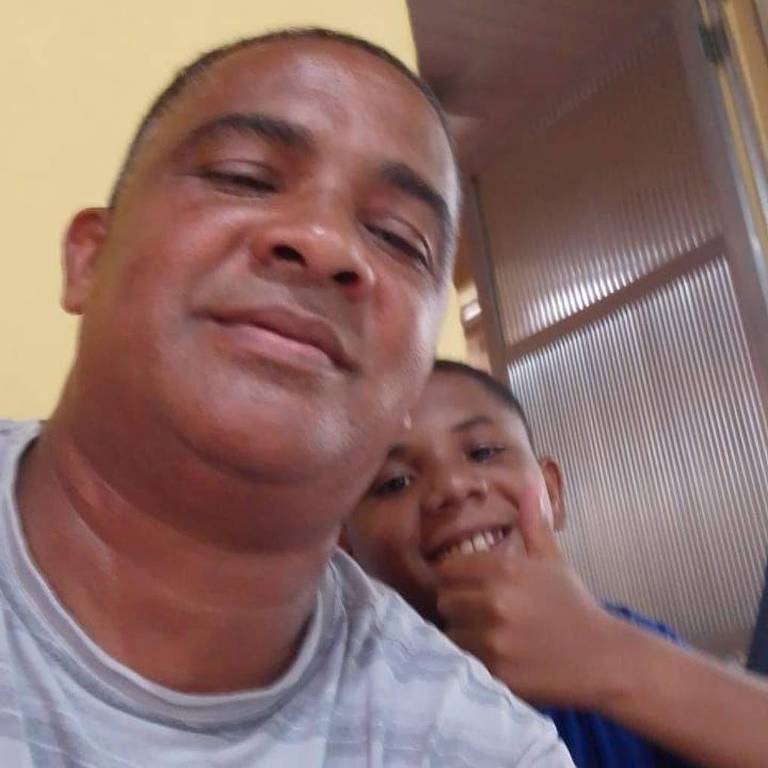
"Last week, he was home Wednesday, Thursday, and Friday. On Saturday, I went to the store to buy him cookies and cake. When I got back, they told me: 'I stopped by so-and-so's house, and Michel was at the gate with a backpack on his back.'"
Samuel returned and noticed his son's clothes and perfume were missing.
"He only called me on Sunday afternoon. He said, 'I'll talk to you when I'm away, every day, just to say good morning.' I didn't know what to do, I never imagined this situation."
On Tuesday, before leaving for work, Samuel turned on the television and learned about the operation.
"I knew he was there. I called him at 8:30. 'My son, how are you?' He replied that he was fine and that he would be home on Wednesday. But it was very quick and he hung up. He didn't answer me again."
On Wednesday, after seeing the photograph and recognizing Michel, Samuel said he didn't want to go to Penha, where residents recovered bodies and left them lined up in the street, because he felt that he and Michel's mother weren't prepared for the scene.
They preferred to go directly to the IML (Instituto Médico Legal - Forensic Medical Institute) to identify the body. When they managed to get the body released, Samuel says he opted for a quick burial.
"Losing a child like that... it's not a natural way. With natural death, we cry, we suffer, but we accept it. But to arrive there and see my son with a hole in his head... people, who can imagine that? Having to identify your own son's body like that?"
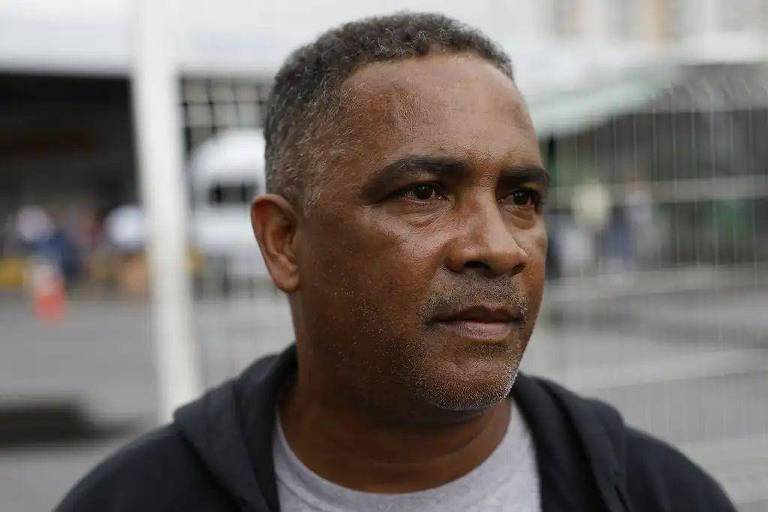
"I don't want criticism of the state or of drug trafficking. My concern is with those who have lost loved ones. Those who need a word of comfort. My concern is the advice given to young people to rethink their lives. Because what happened is in the past."
He leaves a message thinking about families. "A child is an inheritance that needs to be cared for. Parents have to have intimacy with their children, observe their behavior. When my son arrived, I sought all the information because I realized it wasn't what I had been told. It wasn't a matter of wanting to stay on the street, the situation was bigger."
"I advise young people: go to school, study, prepare yourselves to achieve your dreams. Everything that is achieved through effort brings freedom. A young person's best friend and companion in difficult times are their parents. In times of need, it is your mother and father who make the effort. It is your father and mother who will be there to bless you."
"A father's and mother's love is irreplaceable. Their advice is paternal. What mother wants to lose a child?"
This text was originally published here .
uol



%2Fhttps%3A%2F%2Fi.s3.glbimg.com%2Fv1%2FAUTH_59edd422c0c84a879bd37670ae4f538a%2Finternal_photos%2Fbs%2F2025%2Ff%2Fu%2Fn4Zlr2SCOYuGhCankAAg%2Fglobo-canal-4-20251106-2000-frame-164973.jpeg&w=1280&q=100)

